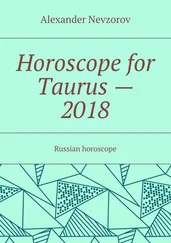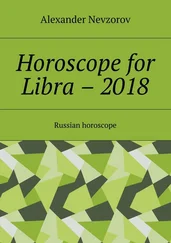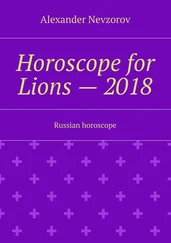Ultimately Sonia invited me back to her home so that we could try out the mixture in peace and quiet. This was the first time that I had been asked to her house. Previously we had always met at agreed rendezvous , and I felt that it was a step forward in my initiation into the network. Sonia lived in a modest little chalet at Caux sur Montreux with her two children and her old German nurse. As pretty a domestic, bourgeois atmosphere as one could find anywhere. The only slightly incongruous note was struck by the two bits of her wireless transmitter, which at that time, with incredible carelessness; she used to leave lying about the house. Not at all the setup one would expect for a Russian agent of long standing.
After dinner we adjourned to the loggia to test out the bomb. We placed the mixture underneath one of Sonia's sofa cushions which she sacrificed for the purpose. As I had thought, the only result was a large quantity of black smoke and an unholy stink. By mutual agreement no further mention was made of the Zeppelin scheme.
But while we had been indulging in amateur pyrotechnics, fireworks on a larger and more European scheme began to go off. About August 23 I was ordered to return to my post in Munich. I boarded the train for Germany in Lausanne but almost before I had settled down and before the train was fairly under way, to my astonishment Sonia entered the carriage and sat down opposite. Luckily the only other occupant left for a few moments and in a hurried whisper Sonia told me that she felt certain that Great Britain would fight and that despite Moscow's orders it would be better for me to delay my return until things became a little clearer one way or the other. We arranged a series of rendezvous on alternate days in Berne, and I left the train and returned to Montreux.
I was not unnaturally somewhat concerned over Bill, who had returned to Germany and was taking a holiday at Titisee on his way back to his post at Frankfurt. Sonia, on the other hand, refused to be perturbed, saying that Moscow would send orders in good time and that for the moment he could do no harm: an attitude not really consistent with her concern over my return to Munich. Sonia was, however, oversanguine as to the solicitude of the Kremlin for their minor operatives in potentially enemy countries. The German-Russian pact hit us like a thunderbolt out of a clear sky. Such a volte-face had never been regarded as practical politics by most people and such rumours of German-Russian flirtations as had reached Switzerland were in the main regarded as merely journalist bar gossip. The first and only reaction to the fact that we had to report Moscow was a day later when Sonia received a message to pull all the agents she could out of Germany and break all contact with any remaining resident agents.
This was my first experience of Russian Realpolitik and it came as something of a shock. Its effect on Sonia, who was an old guard Communist and had for the past eight years regarded Fascism as the major world menace, was of course, shattering. As a good Party member she had had Party discipline drilled into her until it was second nature for her to obey the whims of a Party directive- but she had always regarded the main Party line as being firmly and steadfastly directed against Fascism. At one blow all this was changed and she, as a good Party member, had now to regard the Nazis as her friends and the democracies as her potential foes. Such a bouleversement of all her preconceived ideas was really too much for her. Working as an undercover agent, she had naturally been less subjected to Party propaganda at first hand than her more docile colleagues, who obeyed the behest of King Street - or rather of Moscow relayed through King Street. The latter obediently trimmed their sails to the prevailing wind from the steppes. Sonia, too, paid lip service to her orders and obediently disbanded the organisation that she had been at such pains to build up; but I think that from that time onward her heart was not in the work. She continued to obey such orders as she received and carried out operations to the best of her ability, but at the first opportunity she pulled out and returned to England. In a way she was lucky to have received her disillusionment early in the war. She had worked for many years for what she thought was a righteous cause, and she was spared the final discovery that that cause was not an idealistic crusade but merely power politics in its crudest form.
While Sonia was wrestling with her political conscience I was left with the more practical difficulty of recalling Bill from Germany. As anyone who has tried knows, continental telephoning at the best of times is a game which requires patience and an equable temper. Transfrontier telephoning provides an additional hazard. Add to both these an imminent European war and a plethora of nervous switch censors at the main exchanges on both sides of the border, and it ceases to become a game of skill and degenerates into a haphazard game of chance. In this case I was lucky and after the waste of only several valuable hours, an uncounted number of francs, and the last remnants of what had once been a placid temperament, I managed to get through to Bill where he was sun-bathing beside the lake and told him to get out of Germany as fast as he could. He appeared somewhat surprised, as international events had apparently by-passed his rural retreat and certainly gone over his head. He managed to get out to Switzerland with a few hours to spare. We waited to see what the world and Moscow would next bring forth. The former brought us war soon enough. As for the latter, Moscow evidently decided that discretion was the best course and during the first week of a Europe at war we received no kind of instruction. Heaven knows we had done little enough for the past year, but it was somewhat galling to think that the little we had done was apparently to be completely wasted. I need not have bothered. There would be work enough before I found rest in a Swiss prison.
My career as a resident Russian agent in Switzerland divides itself roughly into two parts. The first, while I was still working with Sonia, covers the period of the phony war; the second lasted roughly from the time of Sonia's departure in December 1940 to my arrest by the Swiss in November 1943. The latter period was the more strenuous, and during it I used to look back wistfully on the pleasant pastoral interlude while the war was still static and Switzerland, as an intelligence centre, moderately stagnant.
The first message that Sonia received after the outbreak of war instructed us to remain quietly in Switzerland and ordered Bill and me to learn short-wave transmission.
The autumn and winter of 1939 passed peacefully enough for us all. No further instructions were received and Sonia used her transmitter only for the despatch of periodic economic and political reports which were more in the nature of sops to Moscow.
Bill and I settled down quietly in a small pension in Montreux and used to proceed periodically up the hill for elementary instruction in wireless transmission given us by Sonia. We also did our best to gain some kind of a clue as to wireless construction. A few beginners' textbooks and some hints from Sonia were all the help we got, but by the end of the winter I was a moderately proficient operator and had some idea as to radio construction, and Bill was in a fair way to becoming a useful operator.
As I said, Moscow worried us little during this period, and Sonia maintained contact only about once a month for the purpose of sending over her surveys. Moscow was leaving us severely alone. Our usefulness to them was past for the moment and the Red Army was content to allow the network to remain fallow until the time should come to revive it. Moscow, however, did produce one suggestion, which was that the whole network should move to Rumania. As it happened, I had made contact in Switzerland with a Rumanian diplomat and on Moscow's suggestion I explored the matter of visas and passports further; and in the end I did manage to work out a scheme by which Bill and I and Sonia and her entourage could move to Bucharest in comparative comfort and with our papers in almost legal order. The whole scheme fell through in the end, since it called for a certain amount of money to oil the machinery of the Rumanian passport office. Moscow was beginning to feel the pinch and dollars were not quite so readily forthcoming in Switzerland as they had been in the past. Looking back on it now, I can only breathe a thankful sigh of relief that the scheme did not reach maturity, as Bill's and my positions in Bucharest a year or so later would have been, to say the least, ambiguous; and I cannot believe that Sonia's documentation would have stood up to a Gestapo scrutiny. The wife of a German, who himself was incarcerated in a Chinese jail for Communist activities, would hardly have been persona grata with the German authorities who were shortly to take over Rumania. On the whole it was perhaps better that we all remained quietly in neutral Switzerland, even though Moscow had clipped our espionage wings.
Читать дальше












